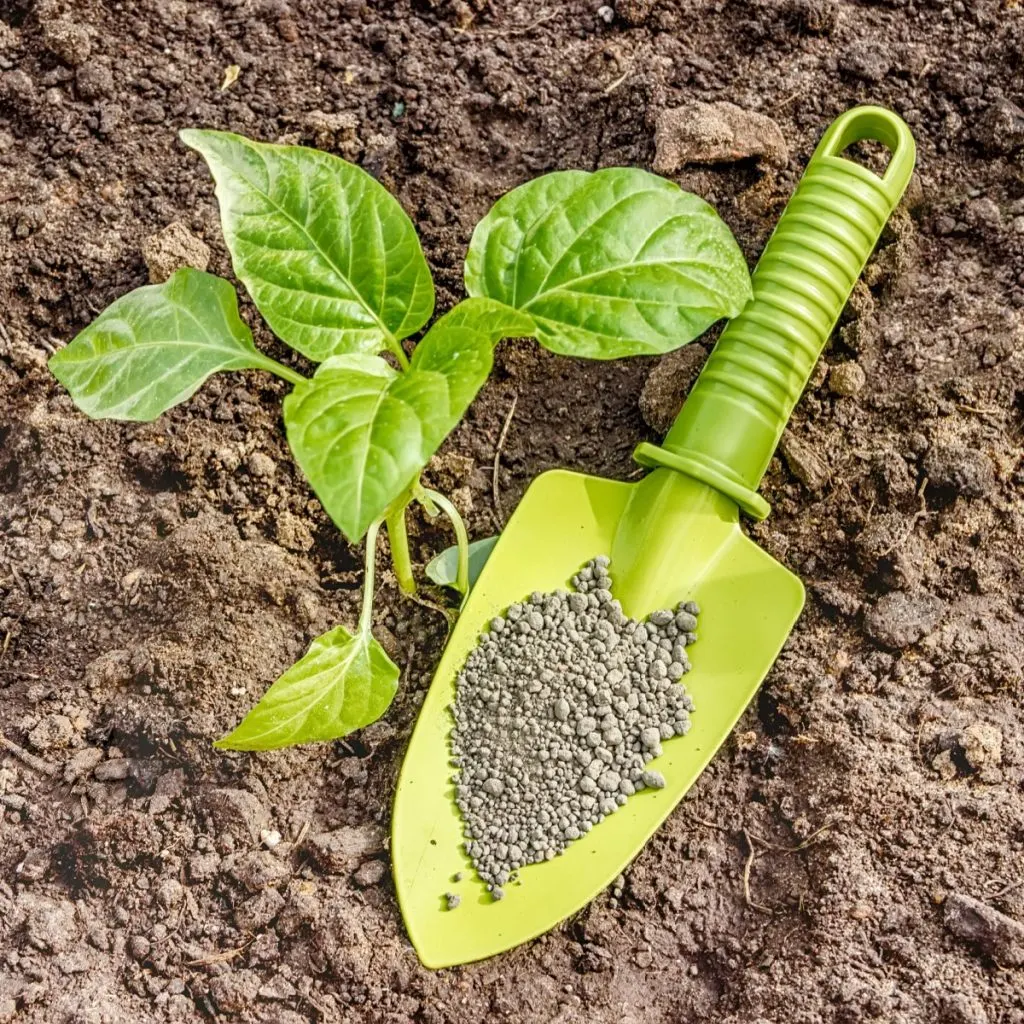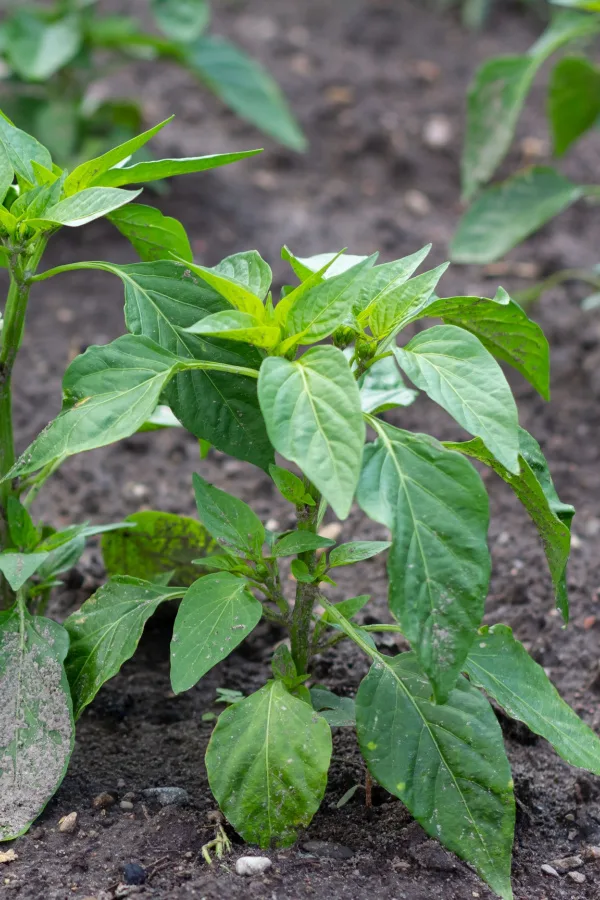Best Fertilizers for Peppers: Boost Development and Flavor with Our Leading Picks
Best Fertilizers for Peppers: Boost Development and Flavor with Our Leading Picks
Blog Article
Organic Vs. Synthetic Fertilizers: Which Is Best for Nurturing Healthy Pepper Plants?
In the world of nurturing healthy pepper plants, the choice between synthetic and natural plant foods stands as a crucial decision with far-reaching implications. While both choices purpose to provide vital nutrients to support plant development, the subtleties of their effect on the soil, plant wellness, and the environment stimulate a discussion that mirrors throughout the horticulture neighborhood. Understanding the unique benefits and prospective mistakes of each fertilizer type is critical for pepper growers seeking to enhance their returns while keeping an eco-conscious and sustainable technique.
Advantages of Organic Plant Foods
Organic plant foods supply an environmentally-friendly and lasting technique to nourishing pepper plants, giving important nutrients without using artificial chemicals. These natural plant foods are acquired from natural resources such as garden compost, manure, bone meal, and seaweed, promoting soil health and wellness and biodiversity. Unlike synthetic plant foods, organic choices release nutrients slowly, making sure a balanced and stable supply for pepper plants to thrive.
One substantial benefit of organic plant foods is their capacity to enhance soil framework and water retention. By enhancing dirt health, natural plant foods advertise helpful microbial activity, which assists in nutrient uptake by pepper plants. Furthermore, organic fertilizers reduce the risk of chemical run-off, shielding water sources from contamination and protecting the setting.
Additionally, organic plant foods add to long-term dirt fertility by promoting the development of helpful dirt organisms. These microorganisms help damage down raw material, launching nutrients in a form that is conveniently obtainable to pepper plants. best fertilizers for peppers. By fostering a healthy soil ecological community, organic fertilizers sustain lasting pepper cultivation practices that benefit both plants and the atmosphere
Downsides of Synthetic Fertilizers
Synthetic fertilizers, in comparison to their natural counterparts, posture numerous negative aspects when made use of to nurture pepper plants, affecting both plant wellness and ecological sustainability. One major disadvantage of artificial plant foods is their tendency to seep nutrients from the soil swiftly. This rapid leaching can result in nutrient inequalities in the dirt, causing plants to endure from shortages or poisonings. Additionally, synthetic fertilizers can hurt helpful soil organisms, such as earthworms and valuable microorganisms, interfering with the dirt community's equilibrium.
In addition, the overuse of artificial fertilizers can add to water air pollution. Excess fertilizers not taken in by plants can get rid of into water bodies, leading to eutrophication, where algae blooms deplete oxygen levels in the water, damaging water life. Furthermore, synthetic fertilizers are typically obtained from non-renewable resources, such as fossil fuels, contributing to carbon discharges and environmental destruction throughout their manufacturing.
Nutrient Absorption Comparison
When comparing natural and artificial fertilizers in terms of nutrient absorption, organic plant foods have the benefit of providing an extra well balanced and slow-release resource of nutrients. Organic plant foods consist of a range of macro and trace elements that are not only advantageous for the plants yet likewise advertise healthy and balanced dirt microbial activity, which assists in nutrient uptake.
Moreover, natural plant foods improve dirt framework and water retention ability, allowing pepper plants to gain access to nutrients much more successfully. This better dirt special info top quality assists in origin growth, making it possible for better nutrient absorption. Artificial plant foods, although originally boosting plant development due to their high nutrient focus, might impede long-lasting nutrient absorption by derogatory dirt health gradually.
Environmental Influence Factors To Consider

On the various other hand, synthetic fertilizers, although usually more immediately offered and concentrated to plants, can have harmful results on the setting otherwise used properly (best fertilizers for find peppers). Their manufacturing requires high power inputs, bring about greenhouse gas discharges and adding to climate adjustment. In addition, the overflow of excess synthetic plant foods can contaminate water sources, causing eutrophication and hurting water ecosystems.
Best Fertilizer Practices for Peppers
When fertilizing pepper plants, enhancing nutrient uptake and lessening ecological influence are crucial considerations. To achieve this, it is important to adhere to best plant food methods customized to the specific demands of pepper plants. One vital method is to carry out a dirt test prior to using any kind of plant foods. This test can identify the pH degree of the dirt and identify any type of nutrient shortages, leading you in choosing the most ideal fertilizer formulation.
An additional important technique is to continue reading this fertilize pepper plants at the right time. Commonly, peppers gain from obtaining plant food at growing and after that once again when they begin to flower. Over-fertilizing can lead to nutrient inequalities and hurt the plants, so it is essential to comply with advised application prices.
In addition, picking a well balanced fertilizer with an NPK ratio that suits pepper plants' needs is basic. Ultimately, incorporating synthetic and organic fertilizers sensibly can assist nurture healthy pepper plants while reducing environmental impact.
Verdict

Organic fertilizers provide an environmentally-friendly and lasting approach to beneficial pepper plants, giving necessary nutrients without the usage of artificial chemicals. Unlike artificial plant foods, organic choices launch nutrients slowly, making sure a steady and well balanced supply for pepper plants to thrive.
Synthetic plant foods, in contrast to their natural counterparts, position various drawbacks when used to nurture pepper plants, influencing both plant health and wellness and environmental sustainability. When comparing synthetic and natural plant foods in terms of nutrient absorption, organic fertilizers have the benefit of providing a much more well balanced and slow-release resource of nutrients.Additionally, natural fertilizers enhance dirt framework and water retention capacity, enabling pepper plants to gain access to nutrients much more successfully.
Report this page